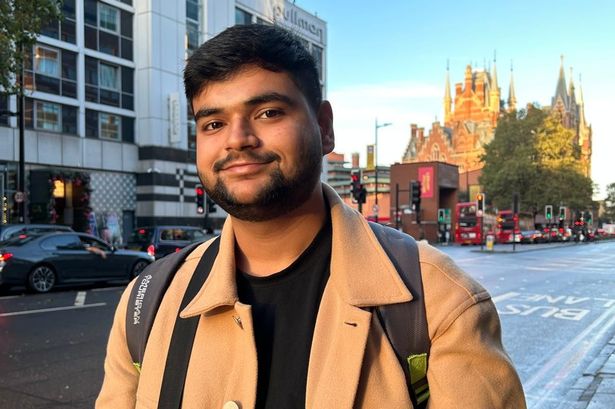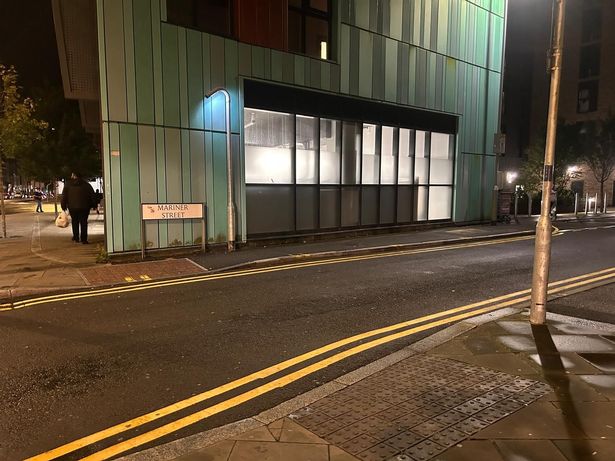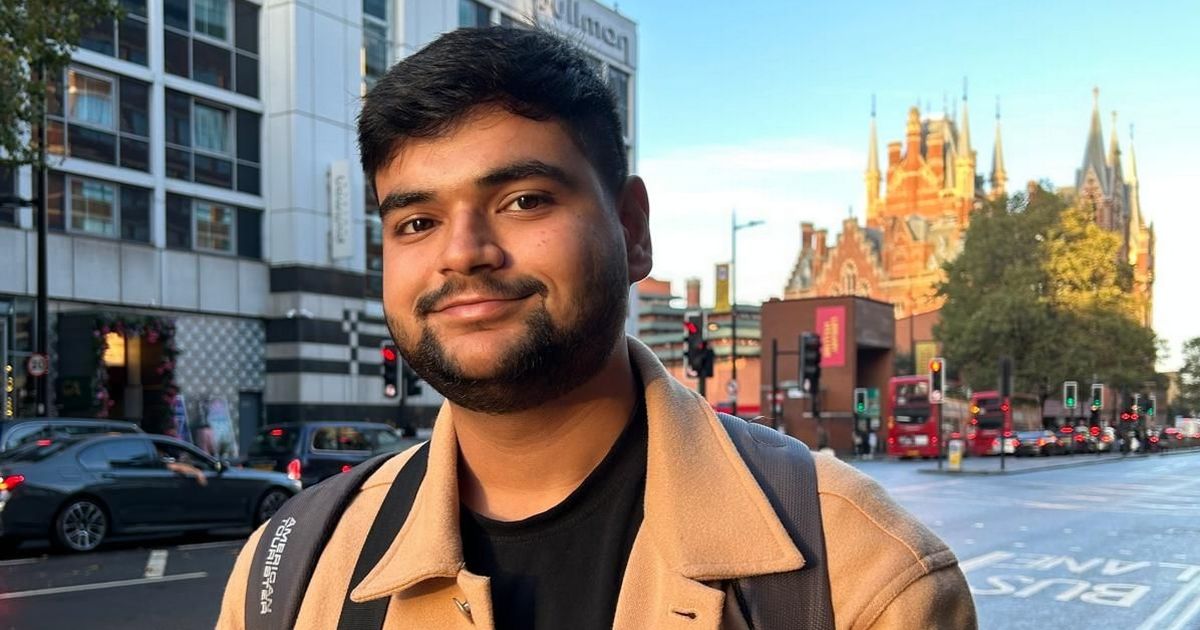I have been racially abused before, but this time it made me fear for my life I have faced my fair share of racism in the UK, but this time I was truly terrified(Image: Shaurya Shaurya)
I have faced my fair share of racism in the UK, but this time I was truly terrified(Image: Shaurya Shaurya)
It has been three years since I came to Wales as an immigrant, and I love it with all my heart. That is exactly why it hurt all the more when I was racially heckled again, this time outside of a train station.
I wish I could say that it was the first time something like this happened, but about a year ago I was left effectively homeless when a landlord said they didn’t want people who look like me living at their property.
I have written at length about my experience in Wales and some of the racism that has been thrown my way, but never have I felt such genuine fear as I felt on this occasion.
 It is a street I have been to hundreds of times, but I never expected something to happen this close to home(Image: Shaurya Shaurya)
It is a street I have been to hundreds of times, but I never expected something to happen this close to home(Image: Shaurya Shaurya)
I live in Swansea and have been living there for nearly a year. Due to the nature of my work, I often come and go from the train station at odd hours. For the biggest stories in Wales first, sign up to our daily newsletter here
But in this one year of living in the city, I have never felt unsafe. Swansea is my home – how can someone feel unsafe at their own home?
Last Sunday night, I followed my usual routine; got off a train from Cardiff, booked a cab and stood at Mariner street, waiting for it to arrive like I have done hundreds of times.
However, this time was different. A group of four to five men came just after me.
I could tell they were drunk, so I maintained my distance. Then one of the men raised his arm and pointed a finger at me for a few seconds.
Before I knew it, there were barely 10 feet between us and he shouted: “Hey you, stop the boats!”
I froze. I couldn’t hear anything past his laughter, and then more came as his friends joined in.
At that time, even though the whole ordeal lasted less than a minute, a wave of fear swept through me and I thought of everything that could go wrong. Should I say anything? What if they attack? There are so many of them, will I even survive?
I have been heckled before. I have been told “go back to your country” before, but never alone, and never on a street at 9.30pm.
I had not done anything to them, I had not said anything to them, I had not even looked at them before one of them pointed towards me. Yet they thought it was “funny.”
After I processed what had happened, I thought of taking out the only weapon a reporter like me could have: my phone. I wanted to dare him to repeat his vitriol on camera, but just then, a cab pulled in.
I did not know if it was for me or not, but I just rushed into its backseat. Unfortunately it was not, and I had to get out of it soon after.
By the time I did, they were gone, but the fear stayed.
I was still an immigrant, it was still 9.30pm, and I was still on a street. I felt unsafe for the first time in the city that I call home.
My cab came eventually, and I was able to finally reach the safety of my room. As I crashed on my bed, I felt a mix of frustration, anger, sadness and helplessness that I can’t describe in words.
I wanted to cry but held my tears as I didn’t want to give the last laugh to bigots like them.
I refuse to believe that this is Wales.
Wales is the people who offered their kind words to me, the people who checked up on me, and the people who were as frustrated as me on what happened.
The bigot who heckled me outside the train station is, as a friend described, “just a very loud minority.”
When the prime minister of the country says the UK risks becoming an “island of strangers”, I don’t think he realises that UK is increasingly becoming that island for those who holding a crumbling NHS together, who prop up the country’s universities, and who, contrary to what many think, pay tax upon tax to stay in he country.
They contribute as much to the country as anyone born here would do.
When the national political discourse is filled with words like “island of strangers”, “stop the boats”, or “migrant invasion”, it emboldens bigots like those I encountered on train station to spew vitriol they would have otherwise kept hidden. These sentiments have been reflected in Wales in recent weeks including angry clashes at a demonstration over Afghans being resettled into the UK being housed at a Welsh hotel.
When politicians who are supposed to lead continuously use divisive terms like these, it risks blurring the lines between what is true and not. You don’t have to believe an immigrant like me, who might have a bias.
Instead, believe numbers, and not just those written on a bus. An August 2025 survey by YouGov found that 45% of Britons would be behind a measure where no migrants are admitted, and a large number of recent migrants would need to leave.
But is this an informed view?
The same study found that nearly half of UK nationals, 47%, believe that there are more illegal migrants living in the UK than legal migrants. As you might not know, I belong to the latter category.
The shocker: it is not true. While estimates on the number of illegal migrants in the UK vary from 624,000 to 1.2m according to The Migration Observatory’s analysis of different data sets, the recorded number of legal migrants in England and Wales according to data based on the 2021 census is 10m.
The figures aren’t anywhere close to each other and if you believe so, you must pause to ask why.
Stopping immigrants from coming into the country would not necessarily mean that public services will improve as some politicians would like you to believe.
Here’s another figure to put that in perspective. While there is no available data on how much immigrants contribute to the Welsh NHS, a 2023 House of Commons report found that 19% of NHS staff in England are not British.
For accessing the NHS, while having no immigrants might mean that you see only UK nationals as doctors it could also mean that sometimes, you might not be able to see a doctor at all.
I do not deny that immigration isn’t an important issue, but I want to stress that it’s not an issue that can be expressed in binaries or in “us vs them.”
It is a nuanced issue, which requires a nuanced approach, not sloganeering.
Unless we tackle it in a nuanced way, people like me, who have done everything right like paid for a visa, paid taxes, paid for university and paid for the public services, will continue to feel the brunt of it.
If that continues soon, the UK might actually become an “island of strangers”, not only to each other, but also to what makes us human.
